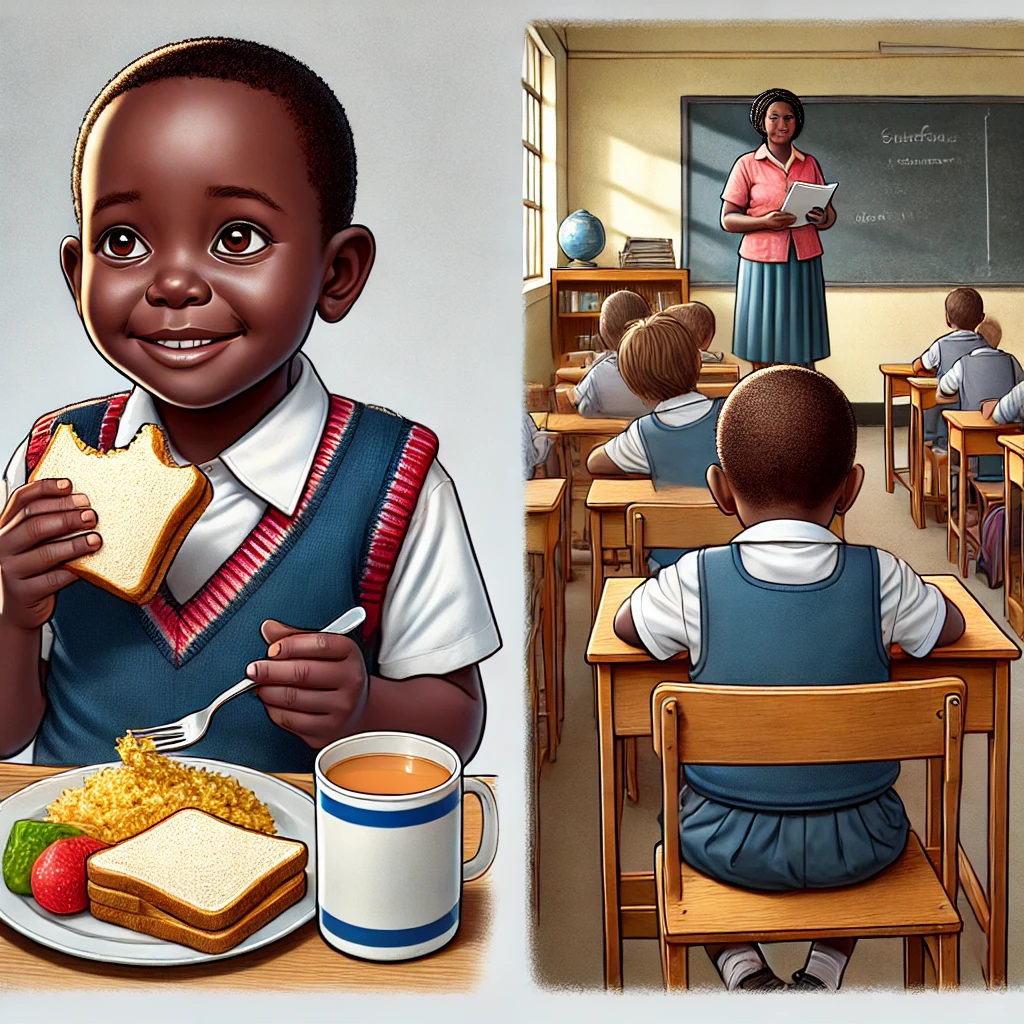Understanding Gluten and Its Effects on Children
As parents, we always want the best for our children—healthy meals, good education, and a bright future. But what if the very food we give them is making school harder than it should be? Many common foods—bread, cereal, chapati, pancakes, sandwiches, samosas, sausages, and even school snacks like mandazi—contain gluten. And for some children, gluten may be affecting their energy, focus, and overall well-being in ways you might not realize.
What is Gluten, and Why Does It Matter?
Gluten is a protein found in wheat, barley, and rye. It’s what gives bread its soft, chewy texture and chapati its flexibility. For most people, gluten is harmless, but for those who are gluten-intolerant, their bodies struggle to process it properly, leading to a range of health issues.

Signs of Gluten Intolerance in Children
A child with gluten intolerance may not always experience the typical stomach problems you’d expect. Instead, they might show signs that directly impact their school performance and daily activities, such as:
🔸 Brain Fog & Lack of Focus – Ever noticed your child staring blankly at the teacher but not actually paying attention? They might be struggling to concentrate due to gluten-related brain fog.
🔸 Fatigue & Low Energy – If your child is always tired, even after a good night’s sleep, it could be their body working overtime to process gluten.
🔸 Bloating & Discomfort – A full stomach should bring satisfaction, not discomfort. Frequent stomach aches, bloating, or gas may indicate gluten intolerance.
🔸 Mood Swings & Irritability – One minute, your child is happy, the next, they are cranky for no reason. This could be due to the effect of gluten on their gut and brain.
How Does This Affect Their Learning?
Imagine trying to solve a math problem while feeling bloated, sluggish, or mentally exhausted. That’s what some children experience daily in school due to gluten intolerance.
Teachers may assume a child is inattentive, lazy, or just not interested in learning—when in reality, their body is struggling with food that doesn’t agree with them. Over time, this can lead to frustration, lower grades, and a lack of confidence in their abilities.

Common Gluten-Containing Foods in a Child’s Diet
Many foods that children love and regularly consume contain gluten, including:
✔ Bread, chapati, pancakes, and sandwiches
✔ Mandazi, samosas, and sausages from school tuck shops
✔ Cakes, biscuits, and certain processed snacks
✔ Pasta and some sauces or soups thickened with wheat
What Can Parents Do?
If you suspect your child might be sensitive to gluten, start by observing how they feel after eating gluten-containing foods. Here’s how you can take action:
✅ Monitor Symptoms – Keep track of your child’s energy levels, digestion, and focus after meals.
✅ Try a Gluten-Free Diet – Replace wheat-based foods with alternatives like rice, millet, sorghum, or gluten-free bread.
✅ Consult a Doctor – If symptoms persist, seek medical advice. A doctor can run tests to confirm gluten intolerance or celiac disease.
✅ Educate & Support – Talk to teachers and caregivers so they understand your child’s needs and can offer support at school.
A Small Change Can Make a Big Difference
Early diagnosis and dietary adjustments can transform a child’s daily life. A child who was once constantly tired and struggling may suddenly have more energy, focus, and confidence.
As parents, let’s pay attention not just to what our children eat, but how those foods make them feel. It could be the key to unlocking their full potential in school and beyond.
Have you ever noticed how food affects your child’s focus and energy? Share your thoughts in the comments!

Comment 1
Very Informative. Consider sharing this on Facebook as well. I think a lot of Kenyan Parents are not aware of this.